Varieties of pink eustoma
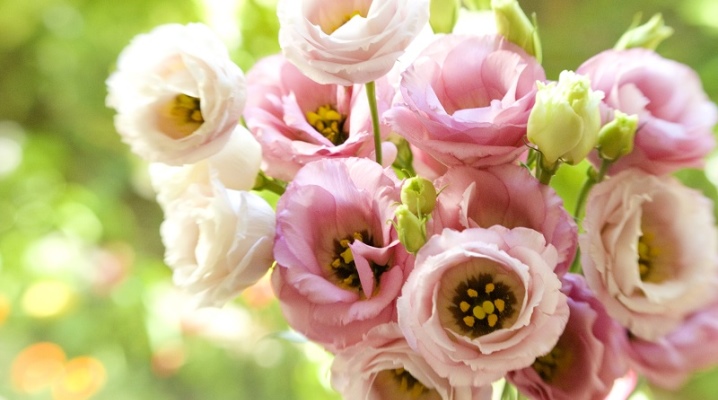
Every gardener dreams of decorating his plot with amazing graceful flowers. The undoubted favorite of summer cottage plants is eustoma. Pink varieties have a special charm. Fascinating delicate flowers are loved by florists and are widely used in creating amazing bouquets.
Peculiarities
Eustoma or lisianthus belongs to the gentian family. Their features lie in the elongated shape of the rim. Also, the flower is called the Irish or Japanese herbal rose for its amazing similarity with the famous "beauty". The plant is a perennial, however, many gardeners grow it for no more than 1 year. The fact is that the eustoma has a delicate root system, which is extremely unstable to low temperatures, so in the northern regions the shrub will "live" for one season.

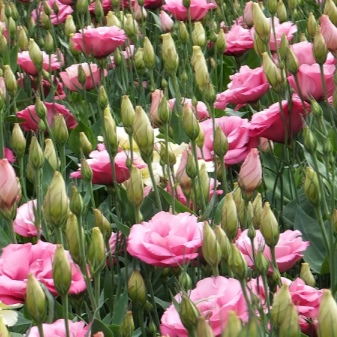
The distinctive features of Lisianthus include the following features:
- powerful, dense stem;
- elongated dark green leaves (matte structure);
- inflorescences resemble bells, several buds form on one peduncle;
- the height of the shrub varies from 50 to 70 cm, there are undersized varieties of eustoma.
The natural color of plants is blue. However, breeders managed to bring out flowers of amazing shades. There are red, cream, lilac and bicolor eustomas.
Pink flowers occupy a special place among them. This variety looks equally impressive in open areas and at home.
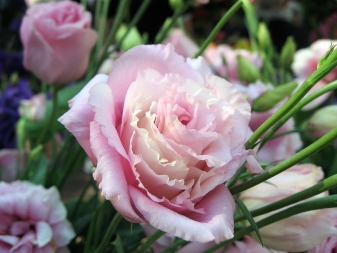
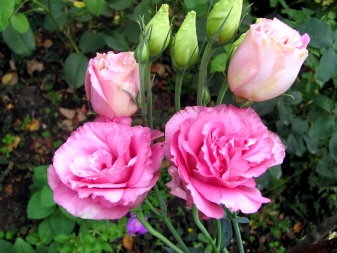
Description of popular varieties
Varieties with a raspberry or white-pink hue have a special charm. The most common varieties include the following varieties.
- Alice pink. The shrub is known for its amazing pale pink buds. This variety is extremely reminiscent of a classic rose, so its popularity is growing from year to year. Alice pink is a delicate plant that requires careful maintenance.
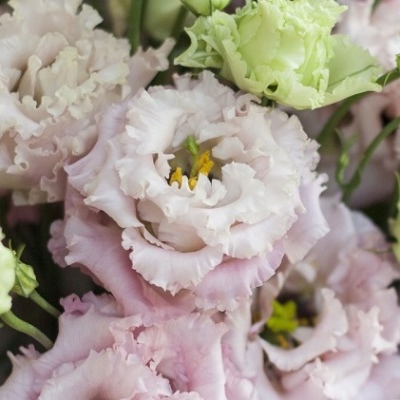
- "Rome Rose". The soft pink buds are shaped like bells. A beautiful variety is used in landscape design. Rome Rose is known for its lush and long flowering. Suitable for growing at home.

- "Sapphire pink haze". Refers to undersized varieties. Differs in large, funnel-shaped flowers of a pale pink color. This variety prefers sunny locations and needs regular watering. Under favorable conditions, "Sapphire Pink Haze" begins to bloom 6-7 months after planting in open ground.
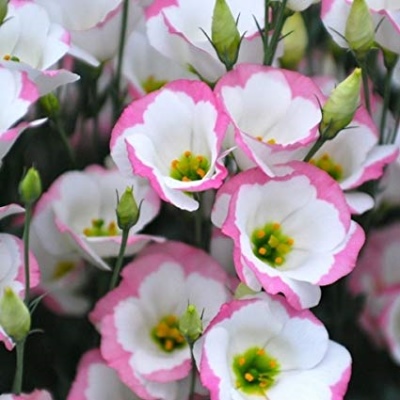
- "Echo picoti". It belongs to early flowering hybrids and is known for its amazing large double inflorescences. The buds, painted in an amazing crimson color, are very popular among florists.

- "Mermaid". An annual eustoma known for its delicate marshmallow-colored buds. When half-open, the variety resembles a “queen of flowers” - a rose. The undersized variety is often used as a potting crop. The Pink Little Mermaid looks no less impressive in hanging pots and large flowerpots.

- Rosita Pink Picoti. Popular variety with bicolor buds. The buds are white and pink in color. The variety belongs to tall and is used to create bouquets and decorate celebrations. Suitable for growing in spacious areas protected from gusty winds.

- Light Pink. The delicate variety, adorned with pale pink buds, does not tolerate low temperatures.The variety is relevant for cultivation in urban conditions. Ideal for making original flower arrangements.
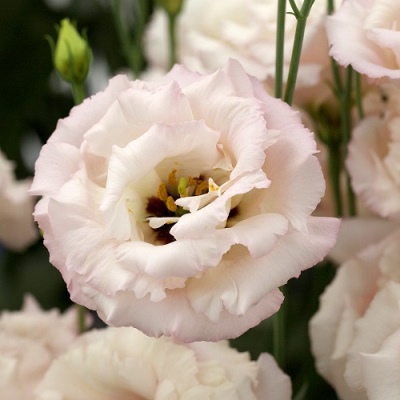
- Carmen Deep Pink. Great for growing in pots. Pink bell buds and light green matte foliage are the main "highlights" of this variety. It is known for its strong root system and long flowering period.
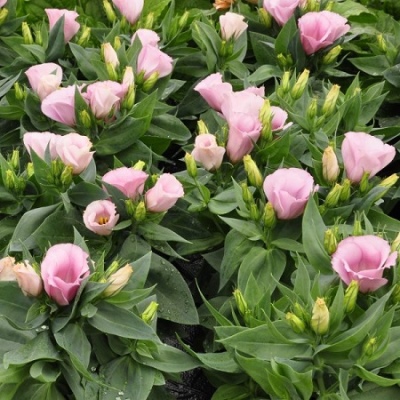
Growing rules
Varieties of pink eustoma are grown, in most cases, by a seed method. It is advisable to purchase planting material in a trusted store. Since the plant does not tolerate low temperatures, it is advisable to plant it in open ground with the arrival of heat. The plant is prepared for seedlings in winter (December, February) and stored in a greenhouse. Lisianthus prefers light, fertile soils. Many gardeners grow the popular plant in peat tablets.
A herbaceous rose can die not only due to severe frosts. A delicate plant can "kill" even the air temperature, which drops below +10 degrees. Seedlings are stored in a dry place.

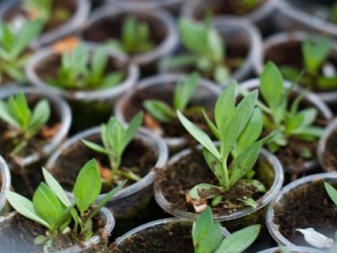
Before planting, the soil is treated (with boiling water with a solution of potassium permanganate) and the planting material is evenly distributed, pressing down a little. Then the soil is moistened and covered with a lid.
Light is important for eustoma, so gardeners often use phytolamp. Moreover, the duration of artificial lighting should not be less than 6-8 hours a day. With proper care, the first shoots will appear after 10-12 days. A pick is carried out when the plants reach 2-2.5 cm. As soon as the seedlings grow up, they are planted in a "permanent residence", while the site should be sunny. Being in the open field, the pink eustoma needs regular watering, weeding and feeding.
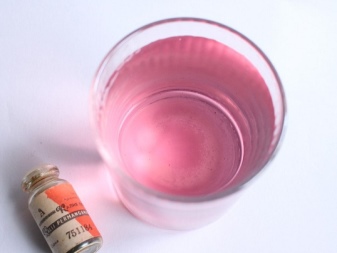

Use in landscape design
All varieties of pink eustoma are widely used to decorate the garden or local area. Irish Rose looks amazing with other decorative flowers or in combination with evergreen conifers. Suitable for group plantings and single compositions.


In the next video, you will find a complete guide to growing eustoma.






































































































The comment was sent successfully.